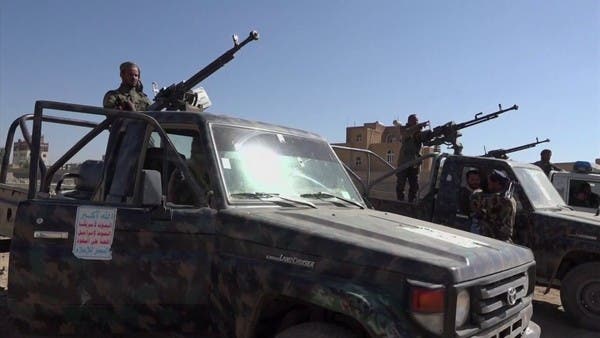In light of the decision to designate the Houthi coup militia as a terrorist organisation, the Yemeni Cabinet announced today, Thursday, that it has implemented a number of executive procedures and programmes for reconstructing ministerial plans to deal with new variables.
The new executive procedures and programmes, according to a statement from the council meeting in the temporary capital of Aden, include rebuilding ministerial plans in a way that meets the needs of the stage and their political, military, security, economic, and humanitarian entitlements in accordance with recent developments, taking into account the continuation of the implementation of the path of reforms, and raising the quality of services offered to citizens.
The Yemeni Council of Ministers also approved a plan to get ready in accordance with mechanisms that were carefully studied to make sure that the Houthi militia classification decision did not affect a terrorist group on commercial activity, the national private sector, and the smooth flow of foodstuffs and food commodities, in order to preserve the livelihood and lives of citizens in the areas controlled by terrorist militias.
Moeen Abdul-Malik, the president of the Yemeni government, gave the order to immediately begin carrying out the ministerial plans that had been approved in accordance with the demands of the new stage, with a focus on finishing the restoration of the state and putting an end to the Iranian-backed Houthi coup.
He drew attention to the outcomes of his meeting with the European Union mission and ambassadors of the various EU member countries accredited in Yemen, as well as the clear perception that the Houthi militia’s intransigence and rejection of all attempts to extend the humanitarian cease-fire and find a political solution has become the international community.
The Yemeni Prime Minister made reference to the government’s unwavering stance on the peace efforts under the aegis of the three political solutions that are locally acceptable and internationally supported, as well as its eagerness to extend the cease-fire and accept the UN envoy’s proposal. However, the terrorist Houthi militia responded by continuing to target the ports of Al-Daba and Al-Nashima in the provinces of Hadramout and Shabwa.
He emphasised that in order to safeguard Yemenis’ capacities, international navigation, and the stability of the world’s energy supply, the Houthis’ ongoing threats against national economic facilities and civilian infrastructure in Yemen and surrounding nations would be vigorously countered.
He also reissued the appeal to the world community to stop the Iranian regime from interfering in the internal affairs of Yemen and to force it to carry out decisions prohibiting the establishment of its terrorist militias there and funding and supporting them through the media.
The Yemeni Cabinet reaffirmed its eagerness to work with Yemen’s allies in the fight against terrorism to coordinate the implementation of any measures meant to safeguard international shipping.
In order to finish the restoration of the state, put an end to the Houthi coup, and confront the delusions of this terrorist organisation and its backers in Tehran, he complimented the high level of readiness of the military forces, security, and Yemeni people.
The Houthi are considered a “terrorist group,” hence the Yemeni government has taken action.

